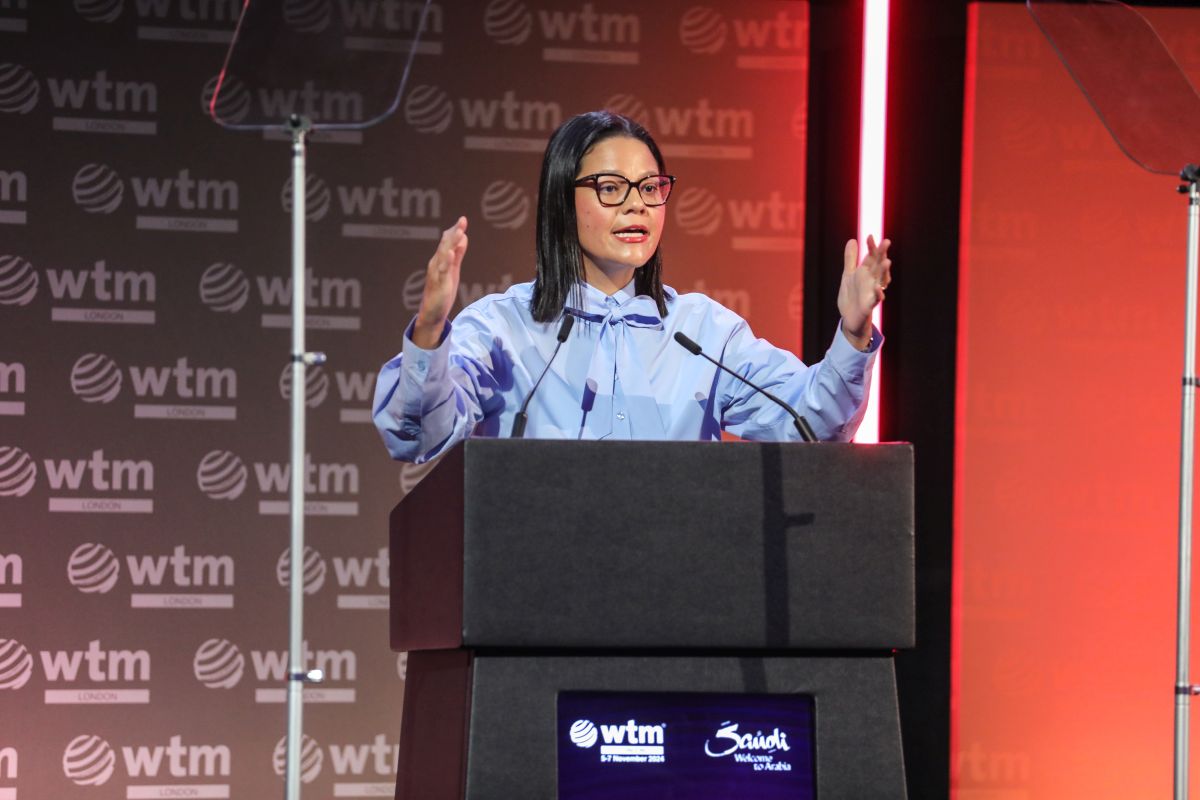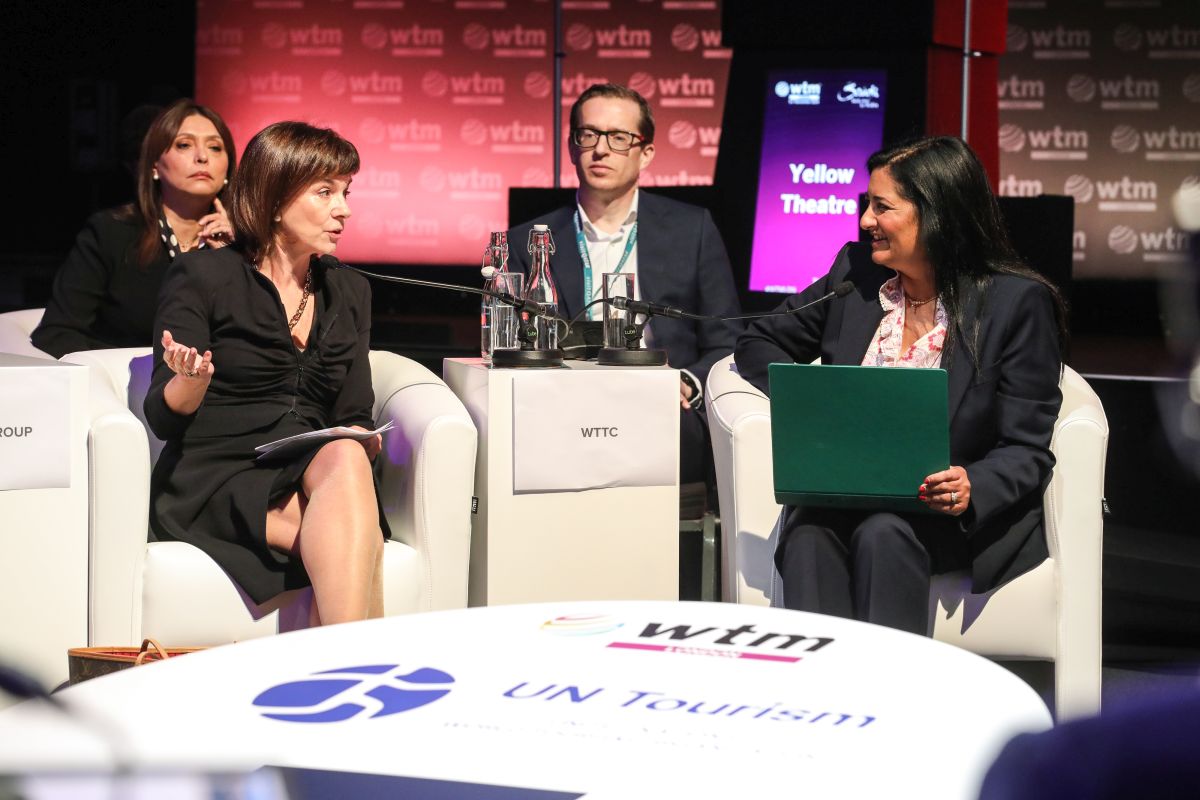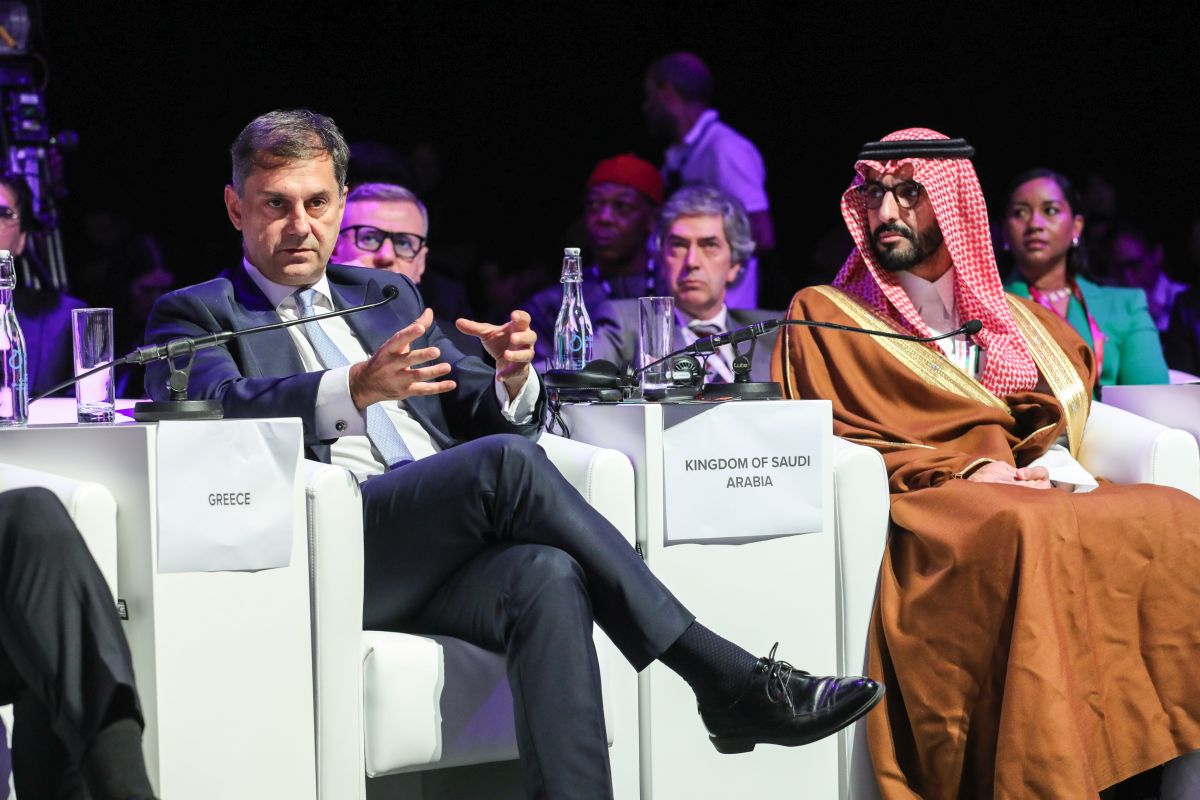.essb_links.essb_size_m .essb_link_svg_icon svg{height:18px;width:auto}.essb_links.essb_size_m .essb_icon{width:36px !important;height:36px !important}.essb_links.essb_size_m .essb_icon:before{font-size:18px !important;top:9px !important;left:9px !important}.essb_links.essb_size_m li a .essb_network_name{font-size:13px !important;font-weight:400 !important;line-height:12px !important}
Global tourism leaders at the 2024 WTM Ministers’ Summit at WTM London agreed that artificial intelligence (AI) has the potential to revolutionize the tourism sector, enhancing traveler experiences and business processes.
The Summit, held on the second day of the World Travel Market (WTM), was run in association with the United Nations World Tourism Organization (UN Tourism) and the World Travel & Tourism Council (WTTC).
Moderated by BBC News Chief Presenter Geeta Guru Murthy, the Summit focused on AI’s transformative power and the ethical considerations governments face when regulating it.
World Travel Market Portfolio Director Jonathan Heastie set the scene in his introduction, observing that “AI has the power to transform tourism as we know it.”
He highlighted that AI will not only enhance the travel experience but also improve business processes — although ethical considerations must be addressed.
UN Tourism: Crafting AI Guidelines
Natalia Bayona of UN Tourism highlighted that AI guidelines for governments, developed in collaboration with major travel businesses such as Booking.com and Expedia, will be released in January 2025. However, creating a global regulatory framework for AI remains complex.
Nikolina Brnjac from the European Parliament pointed out that Europe had already passed the AI Act in August, the world’s first legal framework on AI.
“Europe intends to be the global leader on regulating AI,” she said.
WTTC: Supporting sustainable AI solutions
WTTC President and CEO Julia Simpson showcased AI’s potential for sustainable tourism, citing Hilton’s AI-powered “Green Breakfast Initiative” as an example.
According to Simpson, the initiative helped reduce food waste by 62 percent. She underlined that AI could become an industry standard, assisting smaller businesses in driving sustainability within tourism.
Theoharis: Enhancing traveler experience through AI
On his part, Harry Theoharis, a member of the Greek Parliament, agreed that AI could enhance the travel experience by optimizing processes such as queue management.
He noted that while AI can streamline services, the human element remains central to tourism. “The center of the (travel) experience is the human element,” he said.
AI’s Role in Conservation and Heritage
Other speakers, including Nabeela Farida Koromah of Sierra Leone and Barbara Rowdzi from Zimbabwe, shared how AI is already supporting conservation efforts and enhancing tourism training. These examples demonstrate the technology’s ability to support both sustainability and heritage preservation.
WTM London 2024 will run until Thursday, November 7.
The Greek Travel Pages (GTP) is an official media partner of WTM London.
Stay tuned for news and updates by following our WTM London 2024 Special.
Follow GTP Headlines on Google News to keep up to date with all the latest on tourism and travel in Greece.
This post was originally published on here











